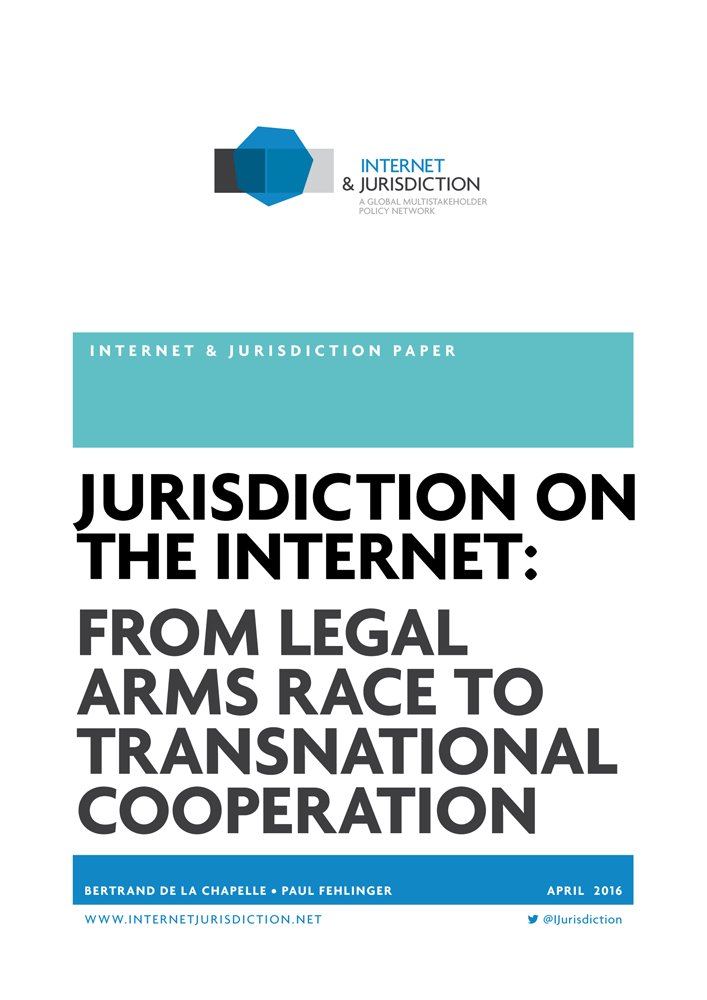Jurisdiction on the Internet
The I&J Paper Jurisdiction on the Internet: From legal arms race to transnational cooperation was commissioned by the Global Commission on Internet Governance and written by the founders of the Internet & Jurisdiction policy network, Bertrand de La Chapelle and Paul Fehlinger.
Since its publication, the paper and its contents have been featured by Fortune Magazine, Politico, Slate, and the Council on Foreign Relations.
Drawing on insights emerging from the I&J policy network's pioneering multistakeholder dialogue process, this paper situates jurisdiction as a common concern for all stakeholders, one that could threaten the global nature of the Internet barring increased efforts toward transnational cooperation.
Executive Summary
The cross-border Internet and its online spaces span a fragmented patchwork of national jurisdictions. As connectivity and Internet penetration increase, so do the conflicts between jurisdictions. Such conflicts challenge the Westphalian international system, and traditional modes of legal cooperation struggle to resolve these jurisdictional tensions. Extreme application of the principle of territoriality and the exertion of digital sovereignty put the global community on a dangerous path if employed on the global scale. If nothing is done, this legal arms race could lead to severe unintended consequences for the future of the global digital economy, human rights, the technical Internet infrastructure and security.
The global community needs to step up efforts to avoid the negative consequences of a legal arms race, preserve the global nature of the Internet and address its misuse. We need innovative cooperation mechanisms that are as transnational as the Internet itself and the necessary policy networks and ongoing dialogue processes to produce them.
About the GCIG
The Global Commission on Internet Governance (GCIG) was launched in 2014 by two independent global think tanks, the Centre for International Governance Innovation in Canada and Chatham House in the UK, and is chaired by former Swedish Prime Minister Carl Bildt. The two-year project informs concrete policy recommendations for the future of Internet governance and addresses concerns about the stability, interoperability, security, and resilience of the Internet ecosystem. The GCIG seeks to provide a framework that balances coordination among advanced industrial democracies and the interests and values of states that are uncertain about the future of multistakeholder governance.
In 2014, Paul Fehlinger and Bertrand de La Chapelle were appointed as members of the GCIG’s advisory network, which has helped to identify and prioritize Internet governance issues within the commission’s mandate



